Money
When banks can close accounts – and what to do if yours is affected
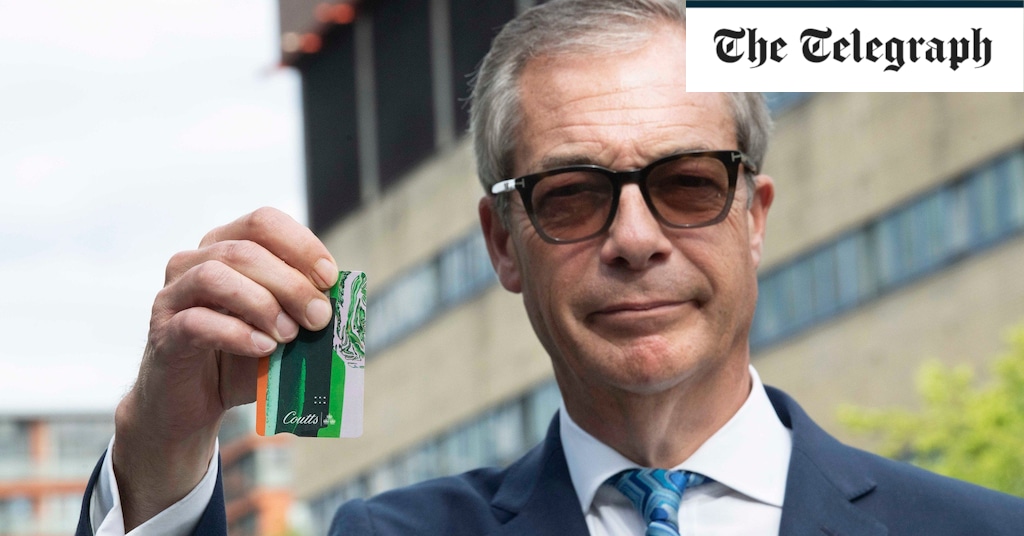

Banks and other financial institutions have to consider whether a politically exposed person is more susceptible to being involved in bribery or corruption because of their profession or position.
Under money-laundering regulations, banks are required to apply enhanced due diligence to politically exposed individuals to ensure that they are not using their institution for money-laundering or accepting cash from illegal sources.
If they can gather enough evidence to prove this, they can close a person’s account – but, again, they do not have to give this as a reason to the account holder.
In 2018, the Financial Conduct Authority, the City watchdog, said it was aware that “some banks no longer offer services to categories of customers they deem to be at high risk of money-laundering”.
There is very little recourse for a politically exposed person who finds their accounts have been closed. More often than not, they are not allowed to open another bank account with any institution in the UK again.
Fraud
Third-party investigative bodies and credit reference groups often work with banks to find and scrutinise account holders who they suspect have committed financial fraud.
A bank can close a person’s account if it, or a third-party, suspects they have committed, or been involved in fraudulent activity.
Like most other reasons for closing an account, the bank does not have to tell you why your account has been closed, and you only need to be suspected of fraud – and not convicted – for a bank to close the account.
If this happens, then there is a good chance you will not be allowed to hold a bank account again with most British financial institutions.
If you suspect that you have been a victim to identity fraud (when someone opens an account and steals money in your name) then you must contact your bank as soon as possible to alert them and they can begin to investigate.
The same goes for theft: for example, if someone steals your bank details or cards and withdraws or spends money fraudulently.
According to Citizens Advice, a bank should refund any money stolen from you as a result of fraud and identity theft. They should do this as soon as possible, ideally by the end of the next working day after you report the problem.
But a bank can refuse a refund if they find you acted fraudulently or were “grossly negligent”: for example, if you shared your pin or password with someone else.
Alasdair Walker, a financial adviser and founder of forum UK Personal Finance, said: “As soon as there is any suspicion of fraud taking place by an account holder and someone is on their list and has a ‘fraud marker’ they are ‘unbanked’ and they can no longer get a bank account in the UK.
“If someone was declared bankrupt, they could still get a basic bank account. But if a person gets a fraud marker, they are unable to get a bank account again. People don’t need to be convicted of fraud, they just need to be suspected of fraud to lose the ability to get an account.
“Some people inadvertently become entwined in fraud, with money being transferred from family or friends and can still lose their accounts if it’s suspected fraud. That’s it, no bank accounts from then on.”
Credit
A bank can close your account if you have failed to repay loans or credit, and/or have a bad credit history.
When a bank closes an account it generally does not affect your credit rating. But if there is an outstanding overdraft or loan when it closes, the bank may give these debts to a credit recovery agency for them to chase, which will affect your rating.
If too many payments “bounce” from your account because there is no balance, then that is also grounds for closure.
Banks can also close an account if it seems it is dormant for too long. Generally, it deems an account as “abandoned” if the account holder fails to use the account, or does not contact the bank, for several years.
Furthermore, if the account has contained no money for several years, the bank may close the account if you have not replied to alerts or correspondence from the bank.
What can I do if my account is closed?
To put it simply: not a lot – especially as a bank does not have to give you a reason why your account has been closed.
If you have been suspected of fraud, money laundering or being a politically exposed person, it is likely you will either not be able to open another account, or will have to wait a very long time to be able to.
But, there are some simple steps you can take if you believe your account has been closed for the wrong reason, or you do not agree with the decision.
First and foremost: contact your bank, especially if you have been previously notified of the closure. Doing so means you have a greater chance of finding out why the account is closed, if it can be reopened or how you can retrieve any funds left in the account.
Making sure you keep all written and online communications with your bank is also vitally important.
Second, halt all direct deposits and withdrawals set up on your account soon after you receive notice about the closure.
Unless suspected fraud or another serious offence is the reason the bank closed your account, you may be able to set up another account with a rival bank or speak to the bank about opening a new pre-paid or “second chance” account.
You can also complain to the bank, and to the Financial Ombudsman Service (FOS), if you believe the closure is unjust or unfair, but you generally have to prove it.
The ombudsman can award compensation if you can prove the bank did not provide notice of the account closure, if you were treated unfairly or you lost money due to the account being closed incorrectly.
A notice on the FOS website says banks can close accounts whenever they want, but they still have to treat their customers fairly.
“Businesses that provide bank accounts are generally entitled to close them – just as their customers are. But you should treat your customers fairly. You shouldn’t close an account because of unfair bias or unlawful discrimination,” it says.
CryptoCurrency
Coinbase’s cbBTC surges to third-largest wrapped BTC token in just one week
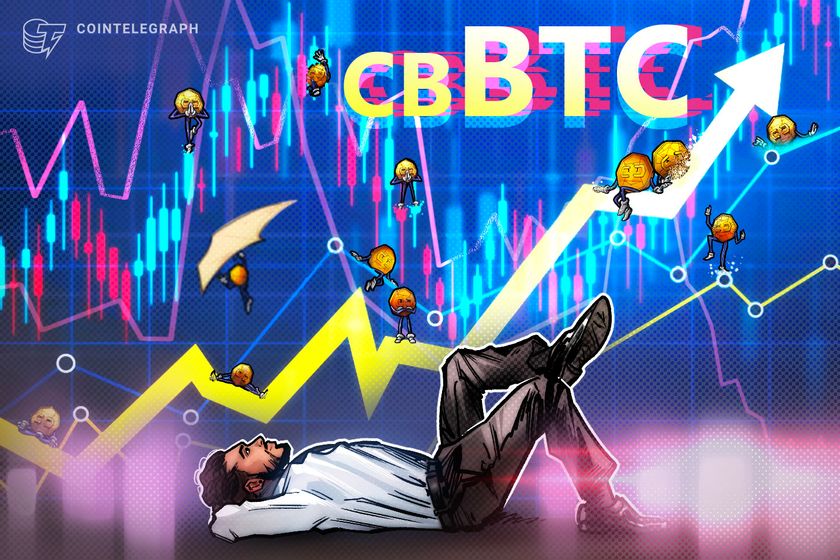

According to data from CryptoQuant, cbBTC circulation supply has outpaced long-established players seven days after launch.
CryptoCurrency
Bitcoin options markets reduce risk hedges — Are new range highs in sight?


Bitcoin options market positioning shifted as BTC price shot through the $60,000 to $63,000 level.
CryptoCurrency
Ethereum is a 'contrarian bet' into 2025, says Bitwise exec


Ether price could be on track for another correction into a triple-bottom, marking the beginning of a big rally into 2025.
CryptoCurrency
Blockdaemon mulls 2026 IPO: Report

CryptoCurrency
SEC asks court for four months to produce documents for Coinbase
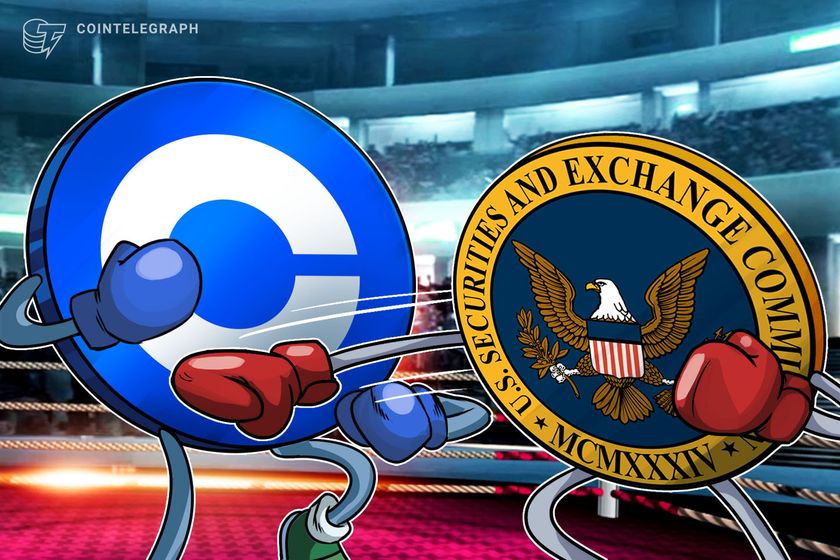

The financial regulator requested an extension until February 2025 to review “at least 133,582 unique documents” as part of discovery motions with Coinbase.
CryptoCurrency
‘Silly’ to shade Ethereum, the ‘Microsoft of blockchains’ — Bitwise exec


Ethereum is still home to the most active crypto developers and is the most attractive chain to build applications on top of for big companies, argues Bitwise’s Matt Hougan.
-

 Sport7 hours ago
Sport7 hours agoJoshua vs Dubois: Chris Eubank Jr says ‘AJ’ could beat Tyson Fury and any other heavyweight in the world
-

 News1 day ago
News1 day agoYou’re a Hypocrite, And So Am I
-

 Technology5 hours ago
Technology5 hours agoiPhone 15 Pro Max Camera Review: Depth and Reach
-

 News8 hours ago
News8 hours agoIsrael strikes Lebanese targets as Hizbollah chief warns of ‘red lines’ crossed
-

 Sport7 hours ago
Sport7 hours agoUFC Edmonton fight card revealed, including Brandon Moreno vs. Amir Albazi headliner
-

 CryptoCurrency6 hours ago
CryptoCurrency6 hours agoEthereum is a 'contrarian bet' into 2025, says Bitwise exec
-

 News5 hours ago
News5 hours agoBrian Tyree Henry on voicing young Megatron, his love for villain roles
-

 CryptoCurrency7 hours ago
CryptoCurrency7 hours ago2 auditors miss $27M Penpie flaw, Pythia’s ‘claim rewards’ bug: Crypto-Sec
-

 CryptoCurrency7 hours ago
CryptoCurrency7 hours agoArthur Hayes’ ‘sub $50K’ Bitcoin call, Mt. Gox CEO’s new exchange, and more: Hodler’s Digest, Sept. 1 – 7
-

 CryptoCurrency7 hours ago
CryptoCurrency7 hours agoTreason in Taiwan paid in Tether, East’s crypto exchange resurgence: Asia Express
-
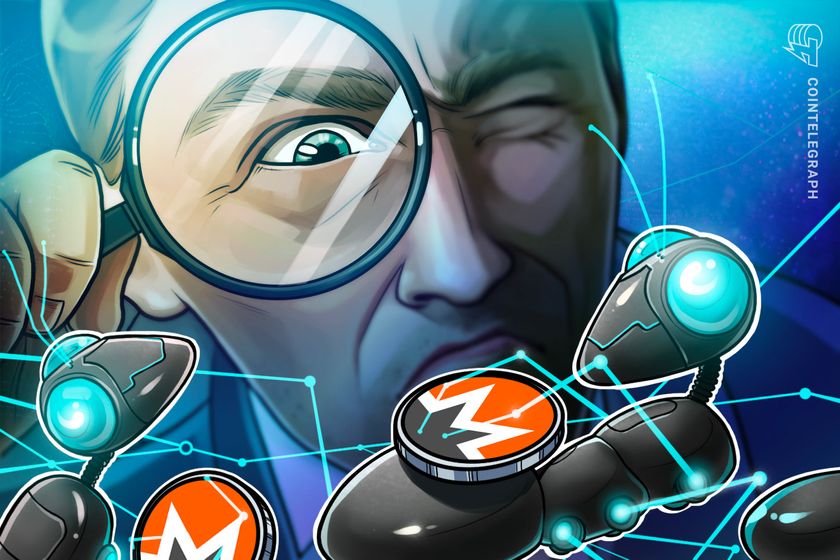
 CryptoCurrency7 hours ago
CryptoCurrency7 hours agoLeaked Chainalysis video suggests Monero transactions may be traceable
-

 CryptoCurrency7 hours ago
CryptoCurrency7 hours agoJourneys: Robby Yung on Animoca’s Web3 investments, TON and the Mocaverse
-

 CryptoCurrency7 hours ago
CryptoCurrency7 hours agoLouisiana takes first crypto payment over Bitcoin Lightning
-

 CryptoCurrency7 hours ago
CryptoCurrency7 hours agoAre there ‘too many’ blockchains for gaming? Sui’s randomness feature: Web3 Gamer
-

 CryptoCurrency7 hours ago
CryptoCurrency7 hours agoCrypto whales like Humpy are gaming DAO votes — but there are solutions
-

 CryptoCurrency7 hours ago
CryptoCurrency7 hours agoHelp! My parents are addicted to Pi Network crypto tapper
-

 CryptoCurrency7 hours ago
CryptoCurrency7 hours ago$12.1M fraud suspect with ‘new face’ arrested, crypto scam boiler rooms busted: Asia Express
-

 CryptoCurrency7 hours ago
CryptoCurrency7 hours ago‘Everything feels like it’s going to shit’: Peter McCormack reveals new podcast
-

 CryptoCurrency7 hours ago
CryptoCurrency7 hours agoSEC sues ‘fake’ crypto exchanges in first action on pig butchering scams
-

 CryptoCurrency7 hours ago
CryptoCurrency7 hours agoFed rate cut may be politically motivated, will increase inflation: Arthur Hayes
-

 CryptoCurrency7 hours ago
CryptoCurrency7 hours agoDecentraland X account hacked, phishing scam targets MANA airdrop
-
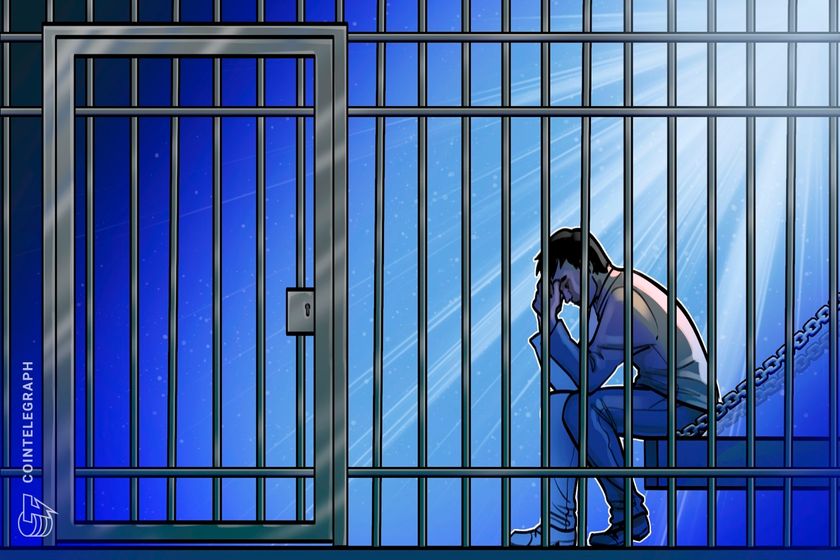
 CryptoCurrency7 hours ago
CryptoCurrency7 hours agoBinance CEO says task force is working ‘across the clock’ to free exec in Nigeria
-

 CryptoCurrency7 hours ago
CryptoCurrency7 hours agoBitcoin price hits $62.6K as Fed 'crisis' move sparks US stocks warning
-

 CryptoCurrency7 hours ago
CryptoCurrency7 hours agoCZ and Binance face new lawsuit, RFK Jr suspends campaign, and more: Hodler’s Digest Aug. 18 – 24
-

 CryptoCurrency7 hours ago
CryptoCurrency7 hours agoBitcoin miners steamrolled after electricity thefts, exchange ‘closure’ scam: Asia Express
-

 CryptoCurrency7 hours ago
CryptoCurrency7 hours agoCardano founder to meet Argentina president Javier Milei
-

 CryptoCurrency7 hours ago
CryptoCurrency7 hours agoCertiK Ventures discloses $45M investment plan to boost Web3
-

 CryptoCurrency7 hours ago
CryptoCurrency7 hours agoMemecoins not the ‘right move’ for celebs, but DApps might be — Skale Labs CMO
-

 CryptoCurrency7 hours ago
CryptoCurrency7 hours agoDorsey’s ‘marketplace of algorithms’ could fix social media… so why hasn’t it?
-

 CryptoCurrency7 hours ago
CryptoCurrency7 hours agoTelegram bot Banana Gun’s users drained of over $1.9M
-

 CryptoCurrency7 hours ago
CryptoCurrency7 hours agoLow users, sex predators kill Korean metaverses, 3AC sues Terra: Asia Express
-

 CryptoCurrency7 hours ago
CryptoCurrency7 hours agoSEC asks court for four months to produce documents for Coinbase
-

 CryptoCurrency6 hours ago
CryptoCurrency6 hours agoBlockdaemon mulls 2026 IPO: Report
-

 Science & Environment10 hours ago
Science & Environment10 hours ago‘Running of the bulls’ festival crowds move like charged particles
-

 MMA6 hours ago
MMA6 hours agoUFC’s Cory Sandhagen says Deiveson Figueiredo turned down fight offer
-

 MMA6 hours ago
MMA6 hours agoDiego Lopes declines Movsar Evloev’s request to step in at UFC 307
-

 Football6 hours ago
Football6 hours agoNiamh Charles: Chelsea defender has successful shoulder surgery
-

 Football6 hours ago
Football6 hours agoSlot's midfield tweak key to Liverpool victory in Milan
-

 Science & Environment10 hours ago
Science & Environment10 hours agoRethinking space and time could let us do away with dark matter
-

 Science & Environment10 hours ago
Science & Environment10 hours agoHow one theory ties together everything we know about the universe
-
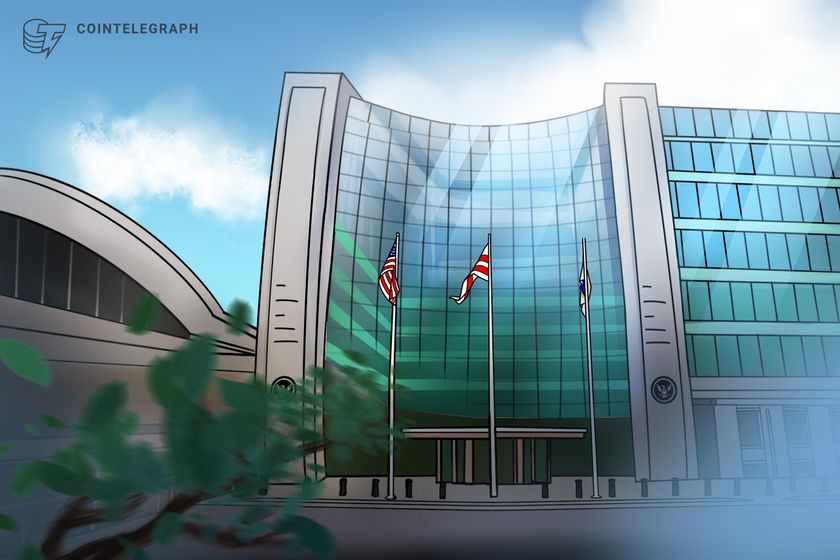
 CryptoCurrency7 hours ago
CryptoCurrency7 hours agoSEC settles with Rari Capital over DeFi pools, unregistered broker activity
-

 Science & Environment21 hours ago
Science & Environment21 hours agoQuantum time travel: The experiment to ‘send a particle into the past’
-

 Science & Environment7 hours ago
Science & Environment7 hours agoWe may have spotted a parallel universe going backwards in time
-

 CryptoCurrency7 hours ago
CryptoCurrency7 hours agoTelegram CEO cannot leave France, OpenSea receives Wells notice, and more: Hodler’s Digest, Aug. 25 – 31
-

 CryptoCurrency7 hours ago
CryptoCurrency7 hours agoFive crypto market predictions that haven’t come true — yet
-
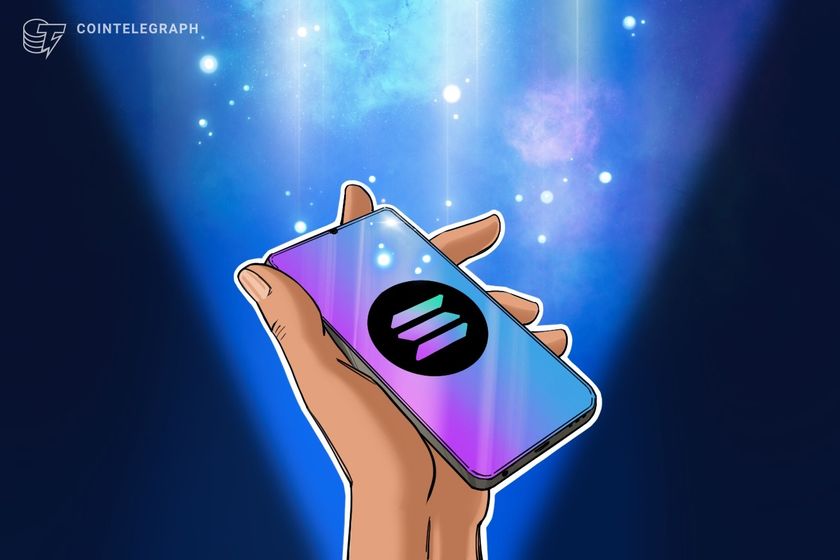
 CryptoCurrency7 hours ago
CryptoCurrency7 hours agoSolana unveils new Seeker device, says it’s not just a ‘memecoin phone’
-

 CryptoCurrency7 hours ago
CryptoCurrency7 hours agoCrypto scammers orchestrate massive hack on X but barely made $8K
-

 CryptoCurrency7 hours ago
CryptoCurrency7 hours agoBitcoiners are ‘all in’ on Trump since Bitcoin ’24, but it’s getting risky
-

 CryptoCurrency7 hours ago
CryptoCurrency7 hours agoReal-world asset tokenization is the crypto killer app — Polygon exec
-

 Science & Environment10 hours ago
Science & Environment10 hours agoFuture of fusion: How the UK’s JET reactor paved the way for ITER
-

 CryptoCurrency7 hours ago
CryptoCurrency7 hours agoBitcoin bull rally far from over, MetaMask partners with Mastercard, and more: Hodler’s Digest Aug 11 – 17
-

 CryptoCurrency7 hours ago
CryptoCurrency7 hours agoVonMises bought 60 CryptoPunks in a month before the price spiked: NFT Collector
-

 CryptoCurrency7 hours ago
CryptoCurrency7 hours agoVitalik tells Ethereum L2s ‘Stage 1 or GTFO’ — Who makes the cut?
-

 CryptoCurrency7 hours ago
CryptoCurrency7 hours agoEthereum falls to new 42-month low vs. Bitcoin — Bottom or more pain ahead?
-
Business6 hours ago
Thames Water seeks extension on debt terms to avoid renationalisation
-
Business6 hours ago
How Labour donor’s largesse tarnished government’s squeaky clean image
-
Business5 hours ago
UK hospitals with potentially dangerous concrete to be redeveloped
-
Business5 hours ago
Axel Springer top team close to making eight times their money in KKR deal
-

 News5 hours ago
News5 hours ago“Beast Games” contestants sue MrBeast’s production company over “chronic mistreatment”
-

 News5 hours ago
News5 hours agoSean “Diddy” Combs denied bail again in federal sex trafficking case
-

 News5 hours ago
News5 hours agoSean “Diddy” Combs denied bail again in federal sex trafficking case in New York
-

 News5 hours ago
News5 hours agoBrian Tyree Henry on his love for playing villains ahead of “Transformers One” release
-

 News5 hours ago
News5 hours agoBrian Tyree Henry on voicing young Megatron, his love for villain roles
-
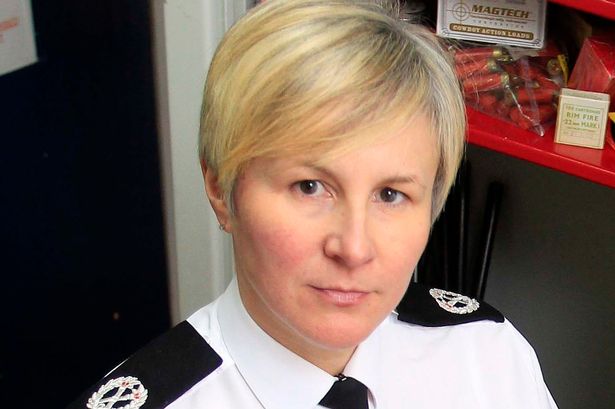
 News9 hours ago
News9 hours agoPolice chief says Daniel Greenwood 'used rank to pursue junior officer'
-

 Technology3 days ago
Technology3 days agoYouTube restricts teenager access to fitness videos
-

 News9 hours ago
News9 hours agoChurch same-sex split affecting bishop appointments
-

 Politics2 days ago
Politics2 days agoTrump says he will meet with Indian Prime Minister Narendra Modi next week
-

 Science & Environment10 hours ago
Science & Environment10 hours agoPhysicists have worked out how to melt any material
-
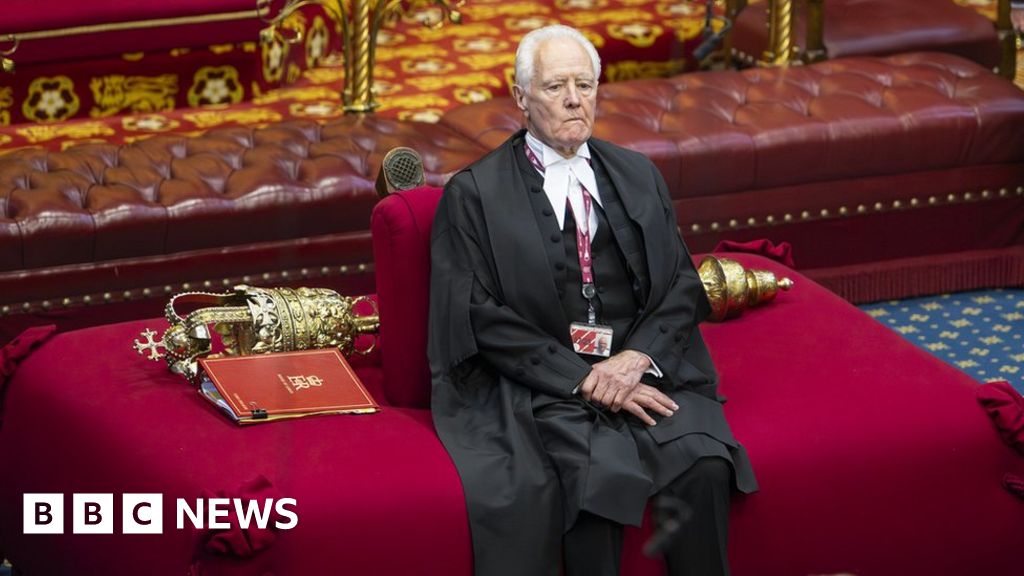
 Politics21 hours ago
Politics21 hours agoWhat is the House of Lords, how does it work and how is it changing?
-

 Politics21 hours ago
Politics21 hours agoKeir Starmer facing flashpoints with the trade unions
-

 CryptoCurrency2 days ago
CryptoCurrency2 days agoBitcoin reclaims $60K and ‘this time is different,’ says analyst
-

 Technology8 hours ago
Technology8 hours agoFivetran targets data security by adding Hybrid Deployment
-

 Science & Environment1 day ago
Science & Environment1 day agoElon Musk’s SpaceX contracted to destroy retired space station
-
News7 hours ago
Freed Between the Lines: Banned Books Week
-

 Sport6 hours ago
Sport6 hours agoUFC’s Dan Ige feels confident after Diego Lopes dominates Brian Ortega
-

 MMA6 hours ago
MMA6 hours agoConor McGregor denies allegation he sexually assaulted woman at NBA Finals
-

 Science & Environment10 hours ago
Science & Environment10 hours agoThe physicist searching for quantum gravity in gravitational rainbows
-

 Football6 hours ago
Football6 hours agoFootball Daily
-

 Science & Environment10 hours ago
Science & Environment10 hours agoHow to wrap your head around the most mind-bending theories of reality
-

 Fashion Models6 hours ago
Fashion Models6 hours agoMiranda Kerr nude
-

 Fashion Models6 hours ago
Fashion Models6 hours ago“Playmate of the Year” magazine covers of Playboy from 1971–1980
-

 Health & fitness2 days ago
Health & fitness2 days ago11 reasons why you should stop your fizzy drink habit in 2022
-

 Politics5 hours ago
Politics5 hours agoLabour MP urges UK government to nationalise Grangemouth refinery
-

 Science & Environment13 hours ago
Science & Environment13 hours agoHow Peter Higgs revealed the forces that hold the universe together
-

 News4 days ago
News4 days agoIndia Now Moves from Deliberations to Deliverables on Crimes Against Women
-

 Technology1 day ago
Technology1 day agoWhat will future aerial dogfights look like?
-

 Science & Environment8 hours ago
Science & Environment8 hours agoOdd quantum property may let us chill things closer to absolute zero
-

 Science & Environment15 hours ago
Science & Environment15 hours agoQuantum forces used to automatically assemble tiny device
-

 Entertainment5 hours ago
Entertainment5 hours ago“Jimmy Carter 100” concert celebrates former president’s 100th birthday
-

 Science & Environment18 hours ago
Science & Environment18 hours agoSunlight-trapping device can generate temperatures over 1000°C
-

 News5 hours ago
News5 hours agoJoe Posnanski revisits iconic football moments in new book, “Why We Love Football”
-

 Health & fitness2 days ago
Health & fitness2 days agoHow to adopt mindful drinking in 2022
-

 Health & fitness2 days ago
Health & fitness2 days agoWhat 10 days of a clean eating plan actually does to your body and why to adopt this diet in 2022
-

 Health & fitness2 days ago
Health & fitness2 days agoWhen Britons need GoFundMe to pay for surgery, it’s clear the NHS backlog is a political time bomb
-

 Health & fitness2 days ago
Health & fitness2 days agoThe maps that could hold the secret to curing cancer
-

 Science & Environment20 hours ago
Science & Environment20 hours agoQuantum to cosmos: Why scale is vital to our understanding of reality
-
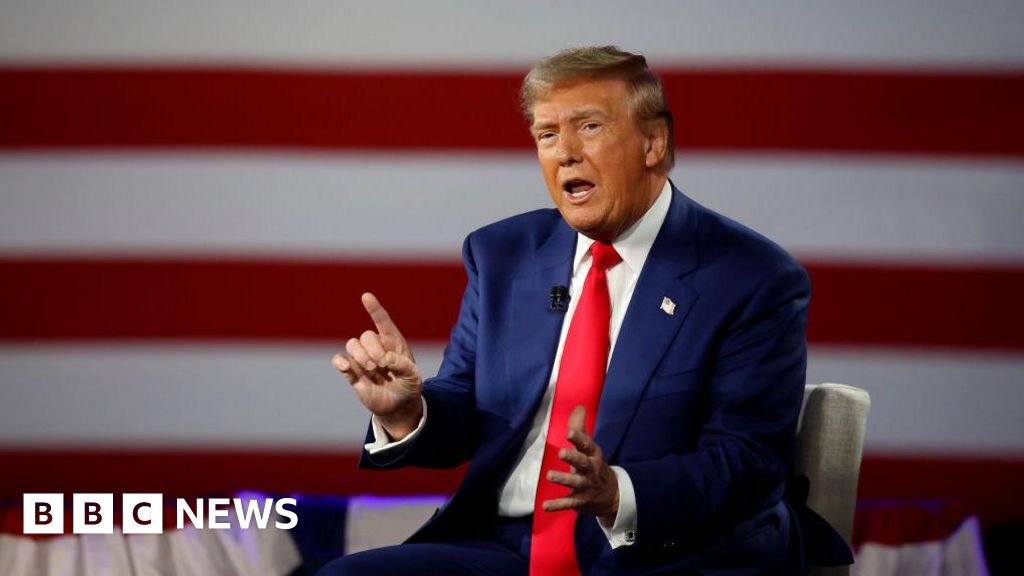
 Technology3 days ago
Technology3 days agoTrump says Musk could head ‘government efficiency’ force
-

 Science & Environment1 day ago
Science & Environment1 day agoParticle physicists may have solved a strange mystery about the muon
-

 Science & Environment21 hours ago
Science & Environment21 hours agoHow the weird and powerful pull of black holes made me a physicist
-
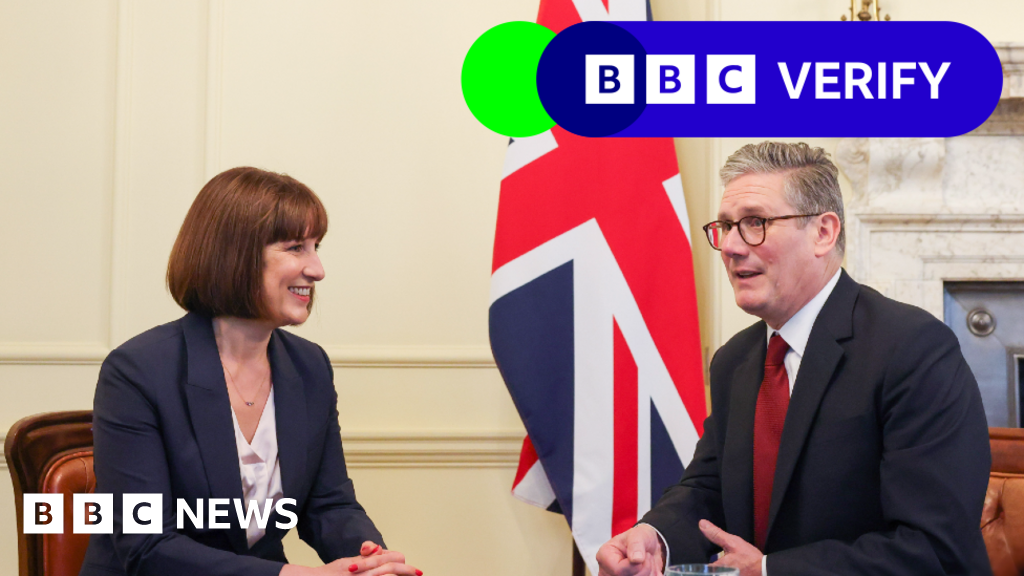
 Politics19 hours ago
Politics19 hours agoIs there a £22bn ‘black hole’ in the UK’s public finances?


You must be logged in to post a comment Login